The Ukrainian offensive in the Robotyne sector has progressed, and the first Russian main defence line has been reached.
In this thread we’ll take a closer look at the main defensive line and what might happen next.
This thread includes high resolution satellite imagery. 🧵 1/
In this thread we’ll take a closer look at the main defensive line and what might happen next.
This thread includes high resolution satellite imagery. 🧵 1/
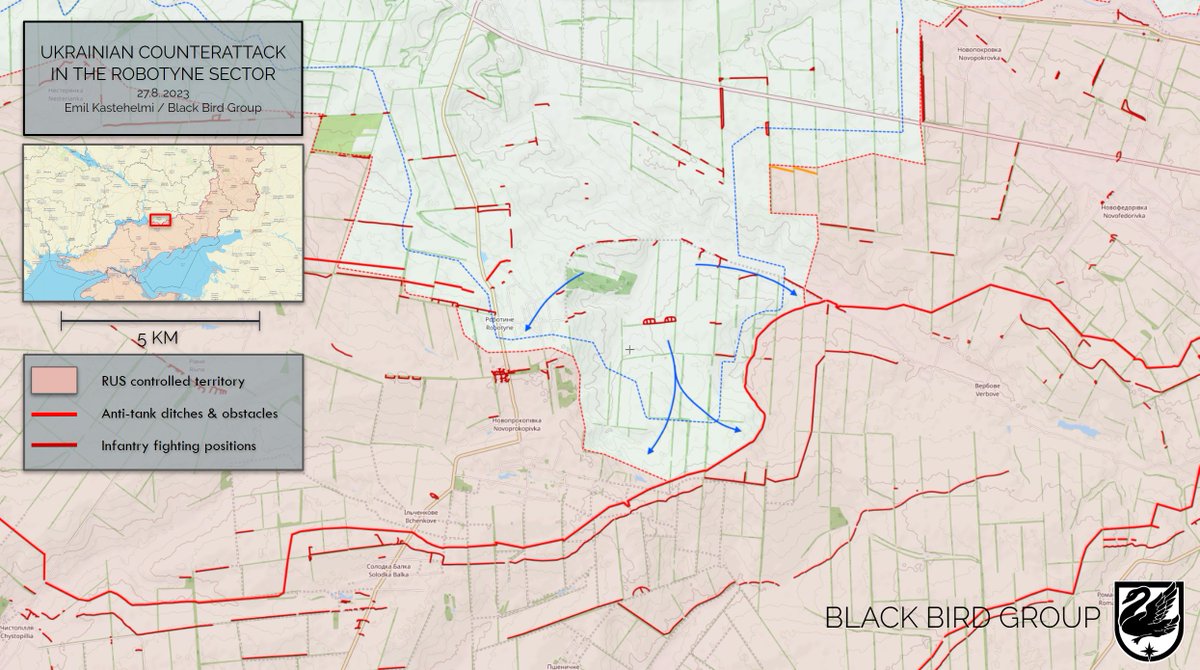
Ukrainians have been trying to advance in the Robotyne area since June. After over two and a half months of fighting, Ukraine has liberated most of Robotyne and continued south, bypassing Novoprokokivka.
In this map, you can see the Southern front on 1.6. and now, 27.8.
2/
In this map, you can see the Southern front on 1.6. and now, 27.8.
2/
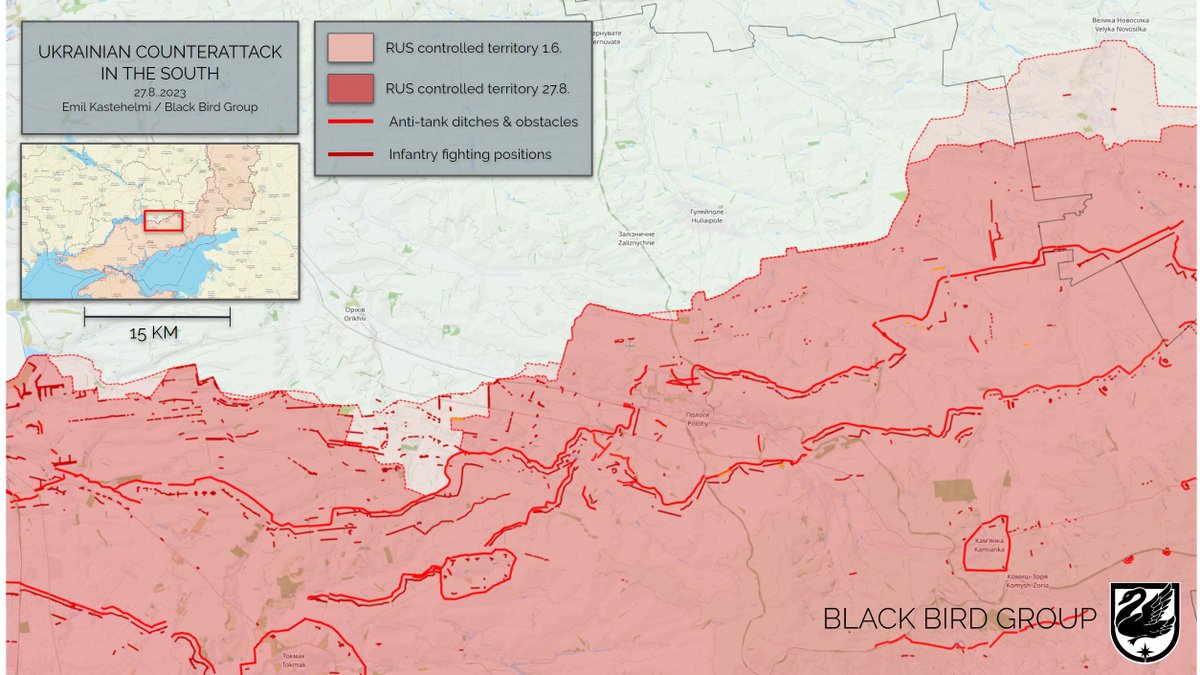
The first significant fortified obstacle is located just outside Robotyne. The Russians have prepared formidable defences, which include covered firing positions and bunkers. From here, the Russians can defend against attacks from both north and east.
Zoom in for details. 3/
Zoom in for details. 3/
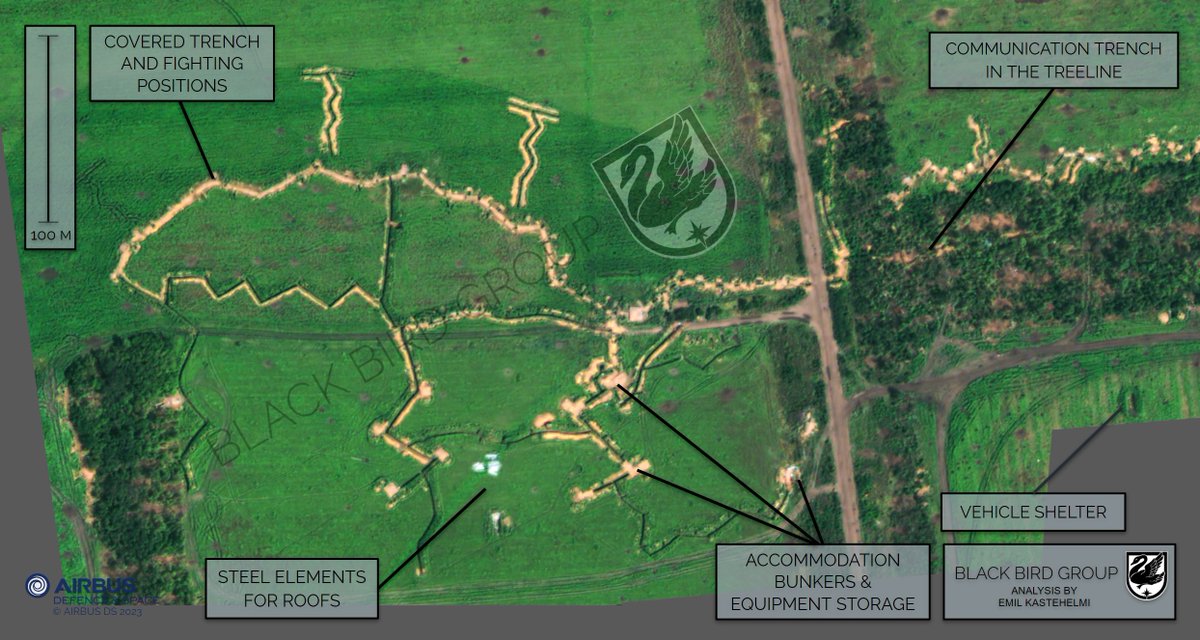
At the moment it seems like Ukraine doesn’t want to attack straight towards these heavily fortified positions.
Instead, they’re flanking the whole village of Novoprokokivka, and have established themselves between the positions south of Robotyne and the main defence line. 4/
Instead, they’re flanking the whole village of Novoprokokivka, and have established themselves between the positions south of Robotyne and the main defence line. 4/
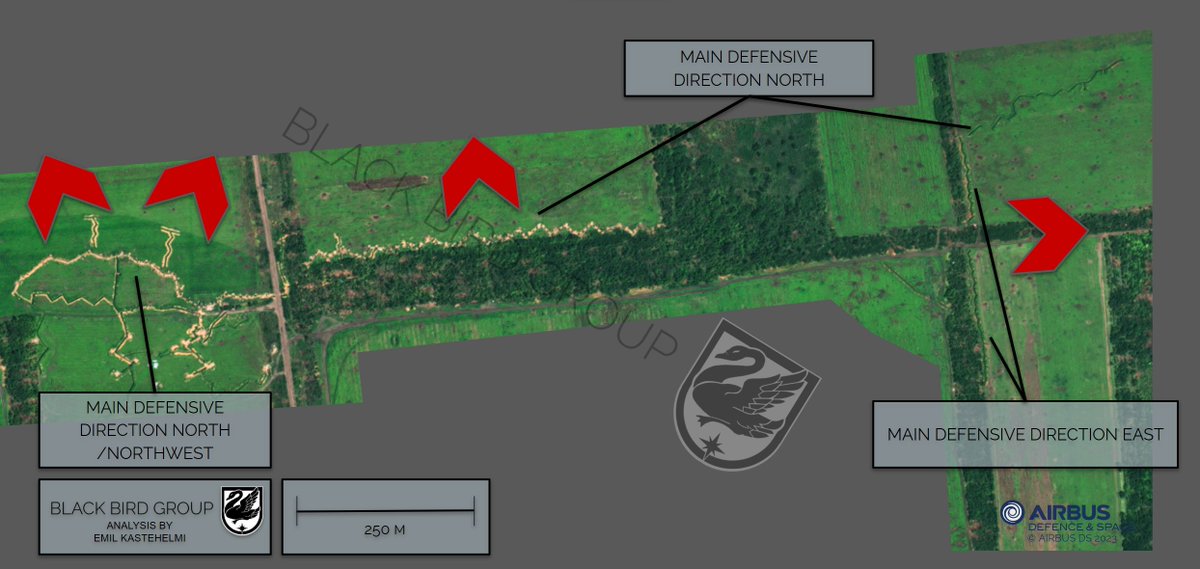
The Ukrainians have roughly two immediate directions:
1. Try to open up the main road in Novoprokokivka and continue towards the heavier main defence fortifications at Solodka Balka.
2. Try to breach the main defensive line near Verbove and continue towards Ocheretuvate. 5/
1. Try to open up the main road in Novoprokokivka and continue towards the heavier main defence fortifications at Solodka Balka.
2. Try to breach the main defensive line near Verbove and continue towards Ocheretuvate. 5/
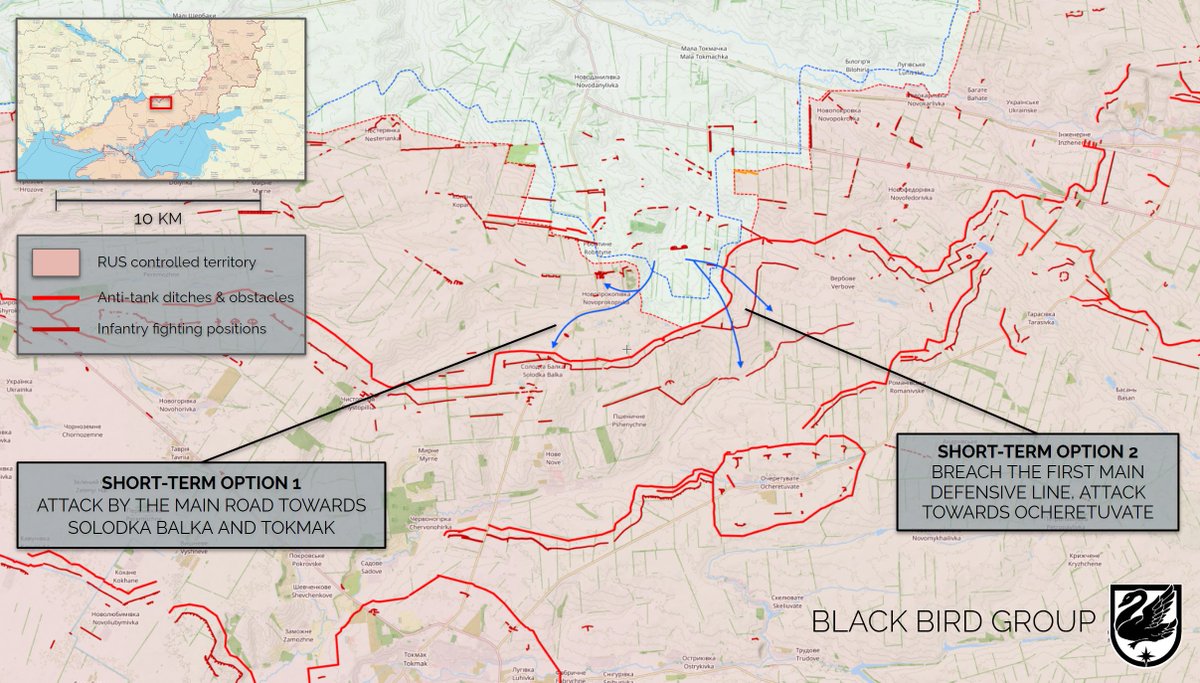
Let’s take a look at the defences in the village of Solodka Balka. At the beginning of August, Russians were improving the positions they built during spring. You can see a lot of construction material, especially steel elements, which are used as roof material. 6/ 
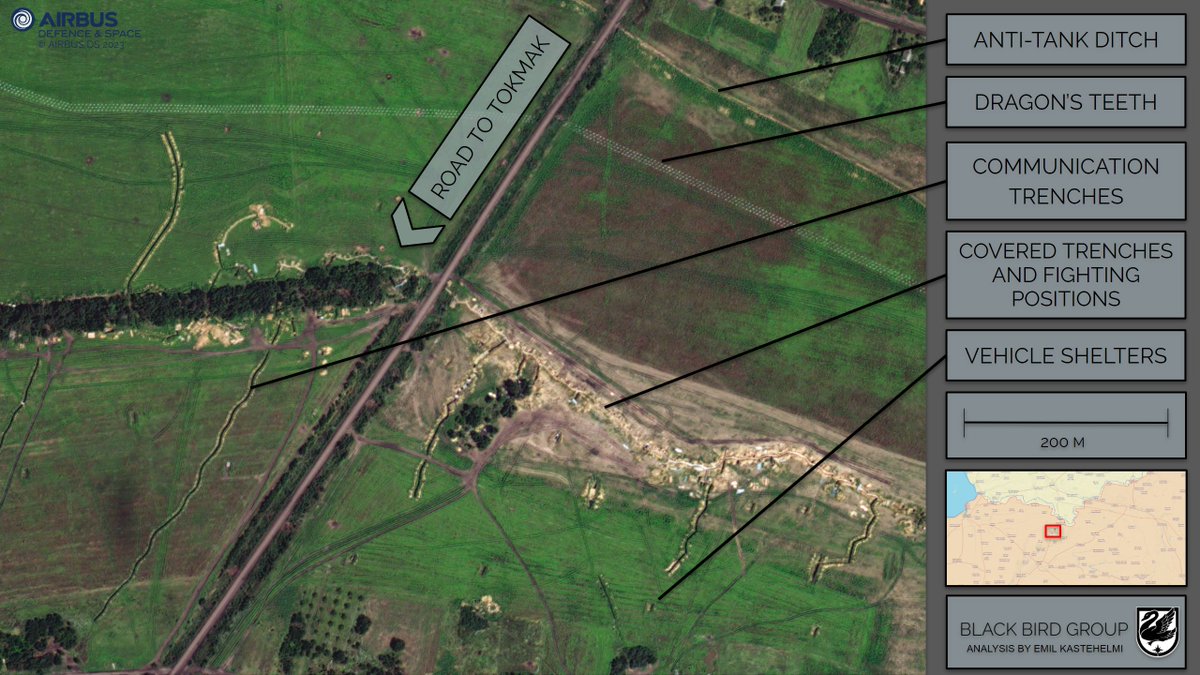
The Russians have built 100-350m long communication trenches, which helps them both reinforce or retreat from the fighting positions. The built area of the village works as a buffer zone, and immediately after the village ends, another trenchline begins. 7/ 
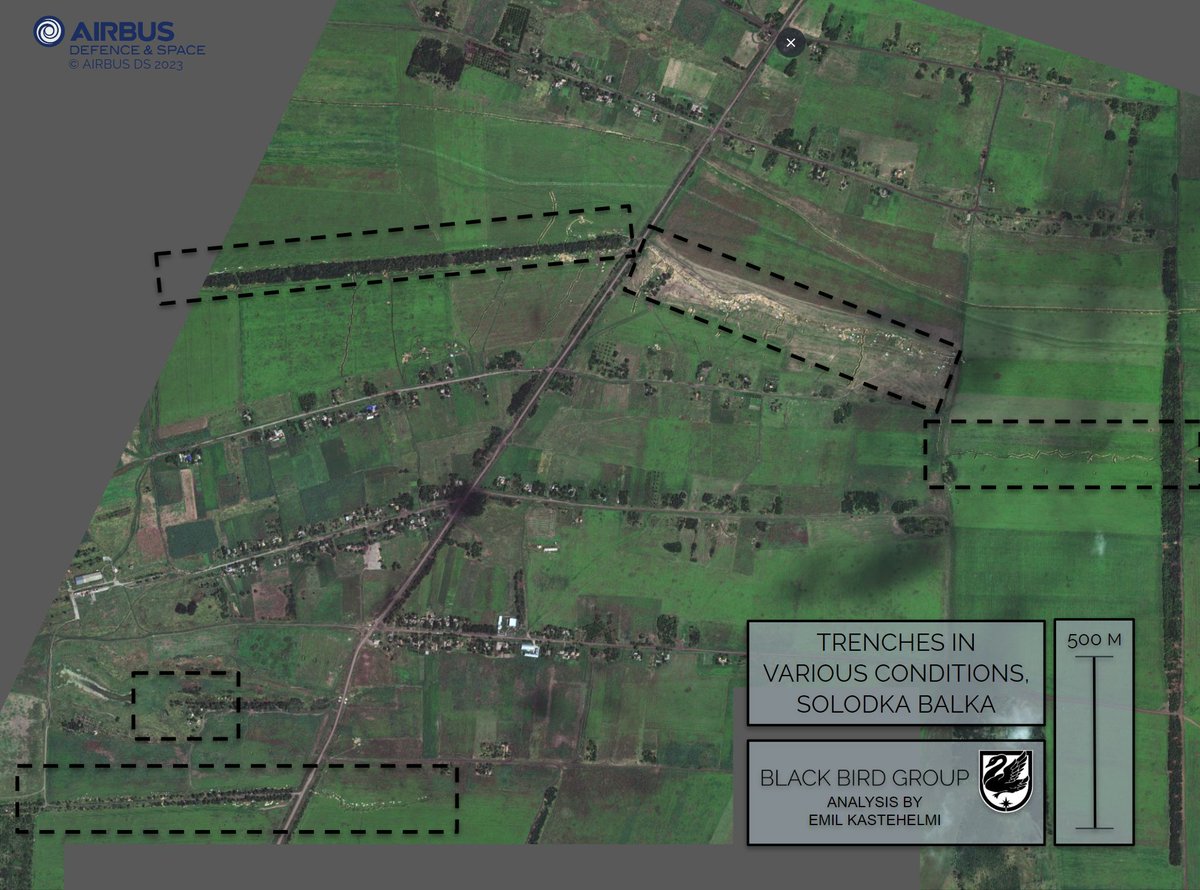
Heavy fortifications are built in order to block any potential advance on the main road towards Tokmak. This is an important avenue of approach, so defending it is very logical. However, while concentrating on this section, the Russians may have missed something important. 8/ 
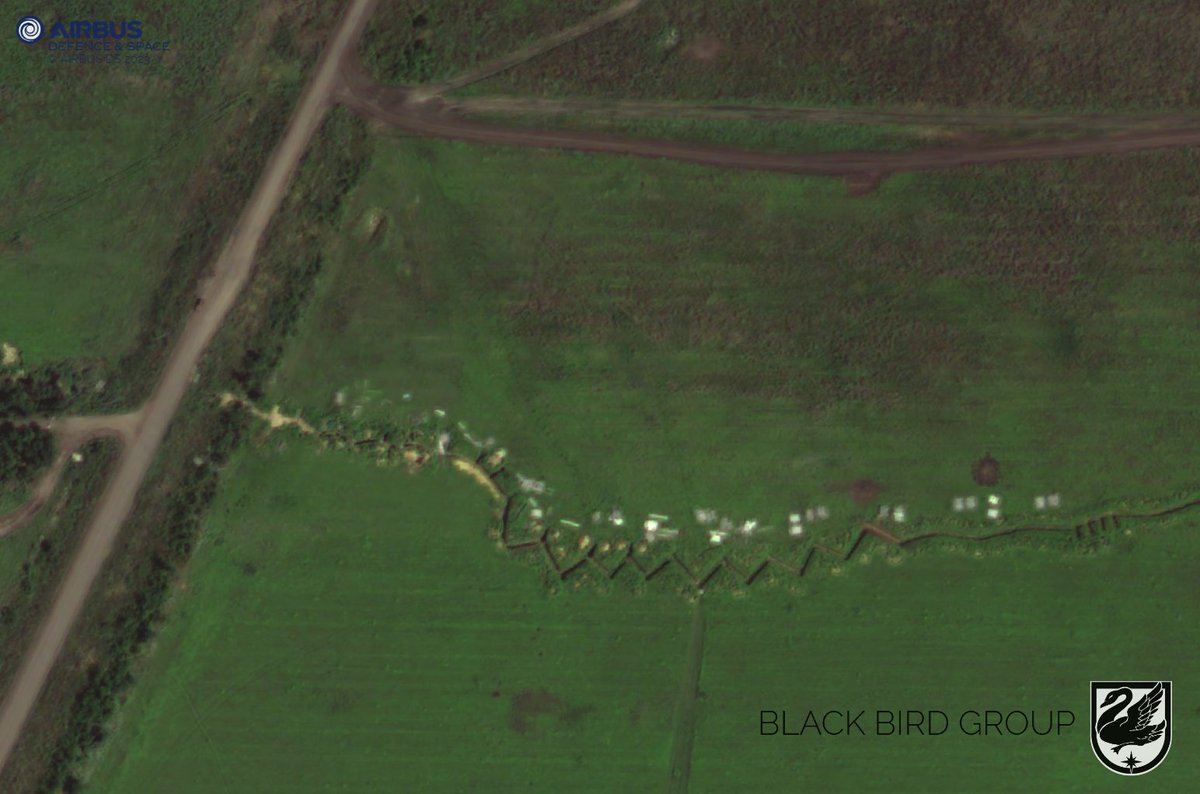
The main defence line west of Verbove seems to be in a significantly worse state.
At the beginning of August, no preparation work for finalizing these trenches had begun. At the end of August, low-resolution images show almost no signs of any trench improvements either. 10/
At the beginning of August, no preparation work for finalizing these trenches had begun. At the end of August, low-resolution images show almost no signs of any trench improvements either. 10/

There are sections with no covered firing positions and very few accommodation bunkers, even though great effort was put into this in other places.
However, the Russians tend to fortify the treelines, but only limited indicators of this can be seen in these images.
However, the Russians tend to fortify the treelines, but only limited indicators of this can be seen in these images.
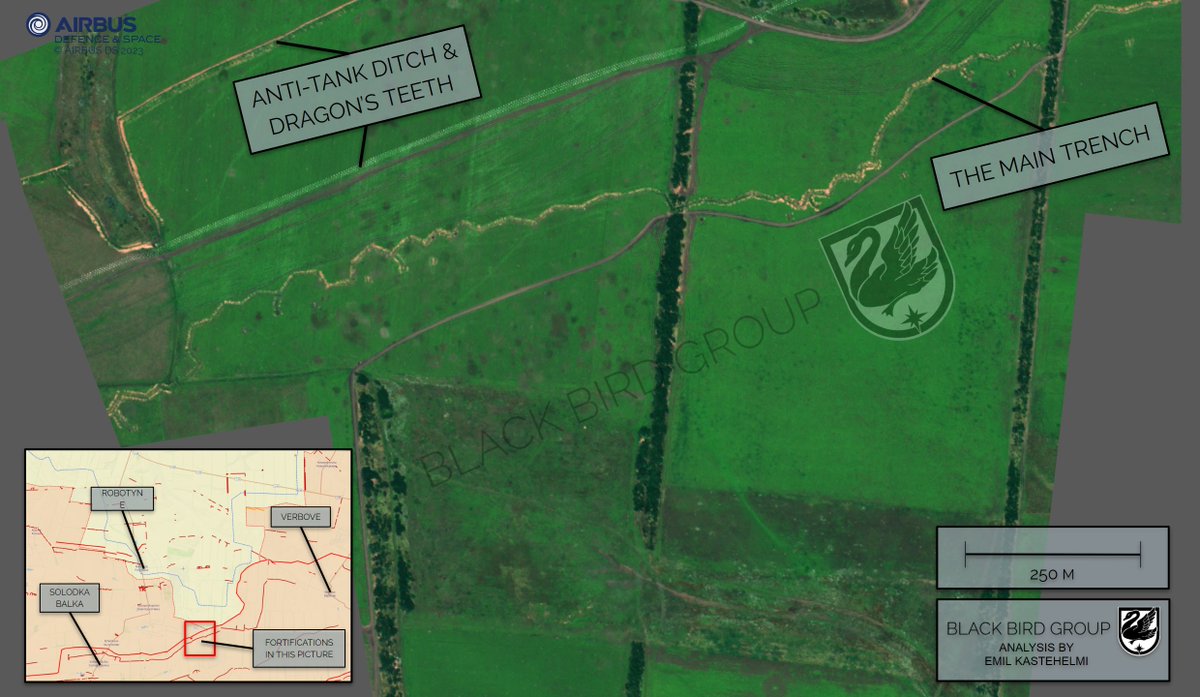
The topographic heatmap gives also some additional insight to the battlefield. Russians have constructed most of their defences on dominant heights, and there is no way to completely avoid fighting uphill.
The highlighted ridge is the next tactically central point. 12/
The highlighted ridge is the next tactically central point. 12/
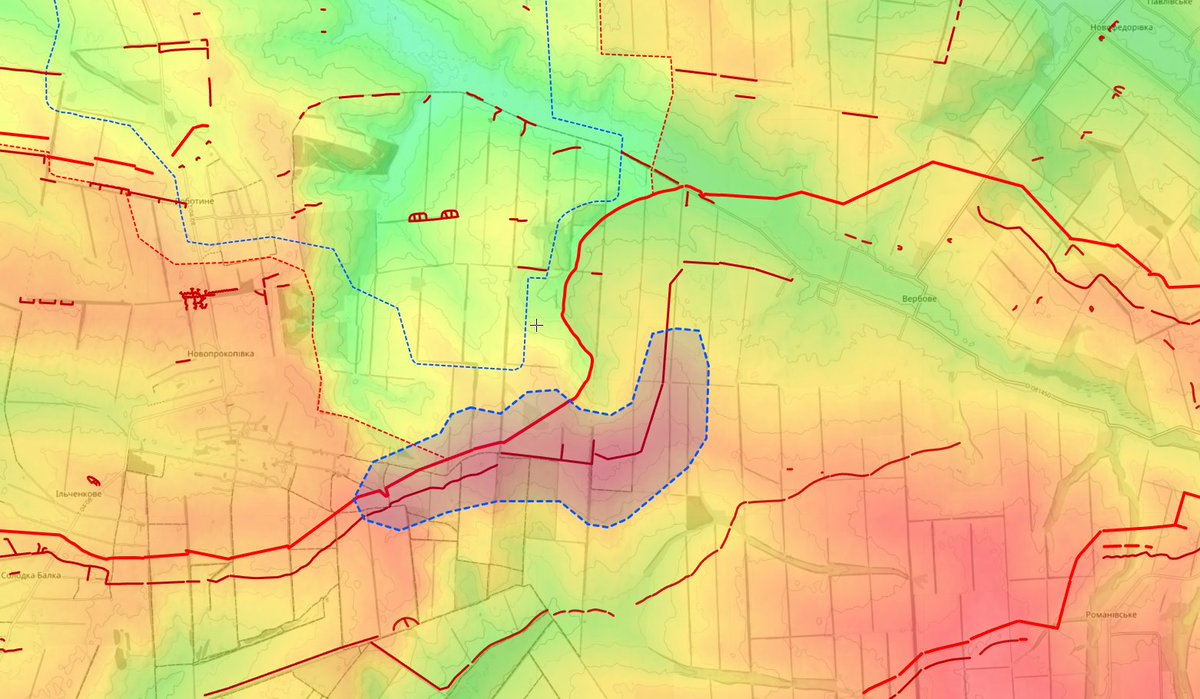
The height differences are not extremely dramatic, and the treelines reduce the Russian field of fire. In this area, the best attempt for the Ukrainians would likely be to continue forward, breach the line between Solodka Balka and Verbove, and start flanking operations. 13/ 

This situation would provide a better basis for future operations, for example attacking the actual villages of Verbove and Novoprokokivka. Widening the salient is necessary in order to create a sustainable frontline. 14/
Soon, AFU has to start clearing the flanks more intensively. The offensive cannot continue south indefinitely - Ukrainians must, at some point, start focusing more on Kopani or Verbove.
Ukraine may face challenges in force distribution and prioritization. 15/
Ukraine may face challenges in force distribution and prioritization. 15/
If the attacks in the flanks do not succeed, the spearhead will also slow down, giving the Russians time to prepare defences in depth.
This is actually happening already - the Russians have started constructing additional defense lines in the Berdyansk/Mariupol direction. 16/
This is actually happening already - the Russians have started constructing additional defense lines in the Berdyansk/Mariupol direction. 16/
So, the main points of this thread:
- Fortifications are not as strong in all areas of the first main defensive line, as known as the Surovikin line
- Russian preparedness varies
- Positive developments for Ukraine are possible in the near future, especially local success
17/
- Fortifications are not as strong in all areas of the first main defensive line, as known as the Surovikin line
- Russian preparedness varies
- Positive developments for Ukraine are possible in the near future, especially local success
17/
Thanks for reading, this thread took forever to make. The images are from 1.-2.8.2023. They do not endanger Ukrainian OPSEC in any way.
Thanks also to @wihurinrahasto for funding us!
Our team at @Black_BirdGroup continues to follow the situation. 18(18
scribblemaps.com/maps/view/The-…
Thanks also to @wihurinrahasto for funding us!
Our team at @Black_BirdGroup continues to follow the situation. 18(18
scribblemaps.com/maps/view/The-…
@wihurinrahasto @Black_BirdGroup Update:
There are many things I am good at. In this thread, writing the name of Novoprokopivka correctly was not one of them. The mistake was made in the beginning, and I repeated it multiple tames. Sorry!
There are many things I am good at. In this thread, writing the name of Novoprokopivka correctly was not one of them. The mistake was made in the beginning, and I repeated it multiple tames. Sorry!
• • •
Missing some Tweet in this thread? You can try to
force a refresh











